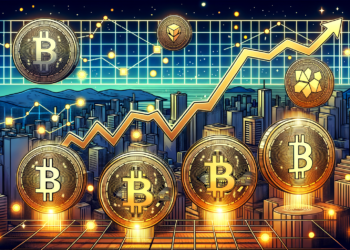Ripple Grows Beyond Crypto—But Can XRP Keep Up?
Ripple’s bold expansion into traditional finance showcases rapid corporate growth—but XRP’s shrinking utility reveals a widening gap between Ripple’s business ambitions and its token’s original purpose.
Ripple’s recent wave of high-profile acquisitions signals growing strength and ambition in bridging traditional finance with crypto.
Yet concerns persist that Ripple’s reliance on XRP-linked financing exposes weaknesses in the company’s long-term financial sustainability and its ecosystem’s real utility.
Growth Outpaces Token Utility
Ripple’s recent acquisitions, underline its accelerated push into traditional finance and its effort to expand financial infrastructure into corporate markets.
However, Ripple’s growing footprint in traditional finance has reignited long-standing concerns about XRP’s utility and relevance. These newly acquired services primarily target institutional clients that rely on conventional financial instruments, leaving XRP with little to no role in their core operations.
The frst question to even ask is: How does the XRP token become more valuable from any of this?The circled part is the focus of what Ripple Prime is being used for: "Enhancing the utility and reach of Ripple's stablecoin, RLUSD."1. RLUSD is 90% issued on Ethereum, which…
— Fishy Catfish (@CatfishFishy) October 24, 2025
This disconnect has become a focal point of growing scrutiny among analysts and investors, who question whether Ripple’s business expansion truly supports the long-term value of its token.
Financial Dependence Conflicts With XRP Roadmap
Despite recent acquisitions, Ripple’s financial reality still heavily depends on XRP sales and tokenomics. The company continues to hold and release large volumes of XRP.
These periodic sales, managed through an escrow system, have long served as a key source of liquidity and operational funding for the firm.
Yet this reliance on selling XRP contrasts with the company’s long-promoted vision of the token as a functional bridge currency rather than a financial asset.
For years, the narrative has been that XRP would become the bridge currency, settlement fuel, and utility token within XRPL and Ripple’s infrastructure. But new data introduces a structural disconnect.
An effective example is Ripple’s RLUSD stablecoin.
As of the beginning of October, RLUSD has reached a market cap of nearly $789 million. Yet, BeInCrypto reported earlier that around 88% of RLUSD’s supply is on Ethereum, not XRPL.
Many XRP holders expected RLUSD adoption to increase demand for the token. Transactions on the XRP Ledger require small XRP fees that are burned. However, most RLUSD activity happens outside the Ledger altogether, limiting its impact on the token’s overall utility.
This situation has created a strategic tension for Ripple, which is expanding beyond XRP’s original purpose. Once expected to benefit from this growth, the token plays only a limited role in new operations.
So far, this shift has not led to greater XRP usage or burns, raising doubts about its real-world utility.
The debate over XRP’s relevance has now expanded to include how Ripple manages and influences the circulation of its token.
XRP Buyback Raises Fresh Questions
Ripple’s intervention in XRP’s market has added another layer to the debate over the token’s utility.
The company recently revealed plans to raise $1 billion worth of XRP to establish a digital asset treasury, one of the largest fundraising efforts centered on a single cryptocurrency.
Supporters view the plan as a sign of confidence in XRP’s long-term prospects and an attempt to bring market stability.
However, critics argue that a company raising capital to buy its own token risks blurring the line between financial strategy and price support.
Some analysts warn that such large-scale interventions could reinforce the perception that Ripple’s success still depends on XRP speculation, rather than genuine on-chain or institutional utility.
Ultimately, the initiative highlights the same structural challenge facing Ripple’s ecosystem. While the company swiftly expands into traditional finance, XRP’s practical role within that growth remains limited.
Disclaimer: The content of this article solely reflects the author's opinion and does not represent the platform in any capacity. This article is not intended to serve as a reference for making investment decisions.
You may also like
Bitcoin and Altcoins Surge Amidst US CPI Drop and Rising Odds of Federal Rate Cut
Crypto Market Sees Green: Bitcoin Soars to $111,500 and Altcoins ETH, XRP, BNB Enjoy 3-5% Gains Amid Lower US Inflation

Selig CFTC Chair Appointment Signals Pro-Crypto Move by Trump
Uniswap Foundation provides up to $9 million in funding to Brevis for building a trustless Routing Rebate program
The Uniswap Foundation has granted funding to Brevis to develop and implement a "Trustless Routing Rebate Program," offering up to $9 million in gas fee rebates to routers integrating v4 Hook pools. This system will utilize Brevis' ZK Data Coprocessor and Pico zkVM to compute and verify all rebate amounts in a trustless manner, without relying on centralized databases or hidden computation. By providing economic incentives to aggregators, this initiative encourages them to prioritize Hook integration, thereby accelerating the adoption of v4.

